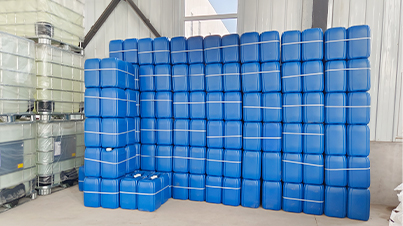Exploring the Benefits and Applications of Industrial Flocculants in Water Treatment Processes
The Role of Industrial Flocculants in Water Treatment and Waste Management
In the realm of industrial processes, the need for effective water treatment and waste management has become increasingly paramount. One of the key players in this field is the flocculant, a substance that facilitates the aggregation of suspended solid particles in liquids, enabling their removal through sedimentation or filtration. This article explores the significance of industrial flocculants, their types, applications, and the benefits they offer in various sectors.
Understanding Flocculation
Flocculation is a colloidal process whereby fine particulates clump together to form larger aggregates, known as flocs. This process is crucial in numerous industrial applications, particularly in water treatment, where it enhances the efficiency of subsequent processes such as sedimentation and filtration. Flocculants can be naturally derived, synthesized, or semi-synthetic and can be cationic, anionic, or non-ionic, depending on the specific functional requirements of the application.
Types of Flocculants
1. Organic Flocculants These are derived from natural sources such as starch, cellulose, or synthetic polymers. They are widely used in various industries due to their effectiveness and biodegradability. 2. Inorganic Flocculants Often based on aluminum or iron salts, these compounds are preferred for their low cost and rapid action. Aluminum sulfate (alum) is a common inorganic flocculant that has been utilized for decades in municipal water treatment.
3. Biopolymer Flocculants With a growing emphasis on sustainability, biopolymers such as chitosan are being explored for their eco-friendly properties. These natural flocculants are derived from chitin, a component of crustacean shells.
Applications of Industrial Flocculants
- Water Treatment Flocculants play a pivotal role in municipal water treatment plants, where they aid in the clarification of drinking water. By aggregating impurities and particles, flocculants improve water quality and ensure compliance with health standards.
- Mining and Mineral Processing In the mining industry, flocculants are crucial for separating valuable minerals from waste materials. They enhance the settling of tailings and improve the efficiency of water reuse in processes, thereby reducing environmental impact.
- Pulp and Paper Industry Flocculants assist in the removal of lignin and other unwanted materials during the pulping process. This ensures higher quality paper production and minimizes the chemical load in wastewater.
industrial flocculant

- Food and Beverage Industry In the production of juices, wines, and beers, flocculants are employed to clarify liquids by removing suspended solids, enhancing the final product's clarity and stability.
- Wastewater Treatment Industrial facilities generate significant amounts of wastewater, often laden with pollutants. Flocculants facilitate the separation of solids from liquids, allowing for more efficient treatment and disposal of hazardous waste materials.
Benefits of Using Flocculants
The adoption of flocculants in industrial processes presents numerous advantages
1. Enhanced Efficiency By accelerating the settling of solids, flocculants significantly reduce the time required for separation, enhancing operational efficiency.
2. Cost-Effective While the initial investment in flocculants can be substantial, the overall reduction in processing costs, water consumption, and energy usage can yield significant savings in the long run.
3. Environmental Compliance The use of flocculants helps industries meet stringent regulatory standards by effectively treating wastewater, thereby minimizing the environmental footprint of operations.
4. Improved Water Quality Flocculants contribute to producing higher quality effluents, which is particularly important for industries that rely on water reuse or discharge into sensitive environments.
Conclusion
Industrial flocculants are indispensable tools in the quest for efficient water treatment and responsible waste management. With their diverse applications and myriad benefits, flocculants not only enhance operational efficiencies across various sectors but also promote environmental sustainability. As industries continue to innovate and adapt to stricter environmental regulations, the role of flocculants will undoubtedly grow, paving the way for a cleaner and more sustainable future.
-
Water Treatment with Flocculant Water TreatmentNewsJun.12,2025
-
Polymaleic AnhydrideNewsJun.12,2025
-
Polyaspartic AcidNewsJun.12,2025
-
Enhance Industrial Processes with IsothiazolinonesNewsJun.12,2025
-
Enhance Industrial Processes with PBTCA SolutionsNewsJun.12,2025
-
Dodecyldimethylbenzylammonium Chloride SolutionsNewsJun.12,2025





